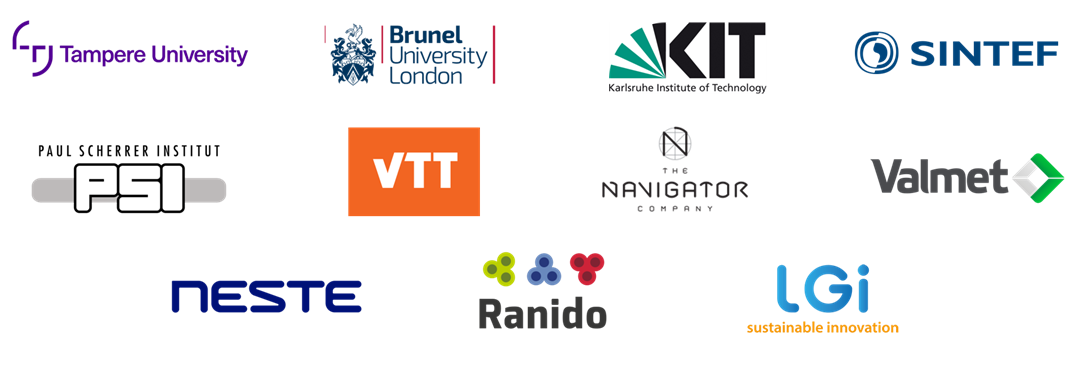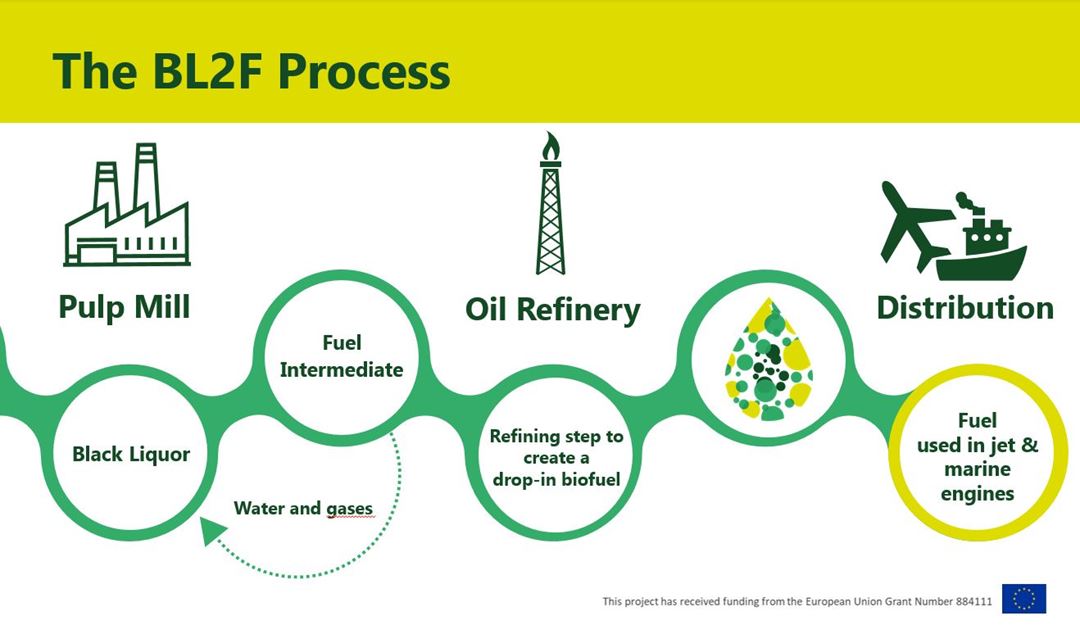BL2F is an H2020 European project that brings together partners from all over Europe to develop a high-quality, drop-in biofuel to be used in the aviation and shipping sectors.
The consortium consists of a mix of partners from research, industrial and innovation backgrounds. BL2F is also supported by a number of key organisations to help achieve the projects’ goals.
3 Main goals
- Create a high-quality drop-in biofuel
The fuel developed by BL2F will be a clean and ready-to-use fuel made from biomass. By integrating the HTL process at the pulp mills (where Black Liquor is produced) this biofuel will produce less emissions along the whole production line. -
Decrease carbon emissions from aviation and shipping
The aviation and shipping sectors are growing at a rapid rate, and so will their greenhouse gas emissions. The fuel developed by BL2F will be a ready-to-use alternative to help these sectors become more environmentally friendly. -
Decrease the use of fossil fuels
Biofuels can decrease carbon emissions by 83% compared to fossil fuels, so the EU is taking actions to search for alternatives that can replace them. The BL2F project aims to provide a clean solution to help make this happen!
The European Commission expects decarbonisation in transport to take off by 2030 and BL2F will take measures so that the first commercial plant will be operational before that.
If implemented at a large scale the processes developed by BL2F can potentially produce 50 billion litres of biofuel by 2050. The fuel produced will also be ready-to-use by the plane and ship engines, this is called “drop-in” fuel so there is no energy wasted in adapting plane and ship engines for this new fuel.

12 partners from 8 countries https://www.bl2f.eu/partners/

Project Coordinator: Tampere University

For more information about the BL2F project, see the website


